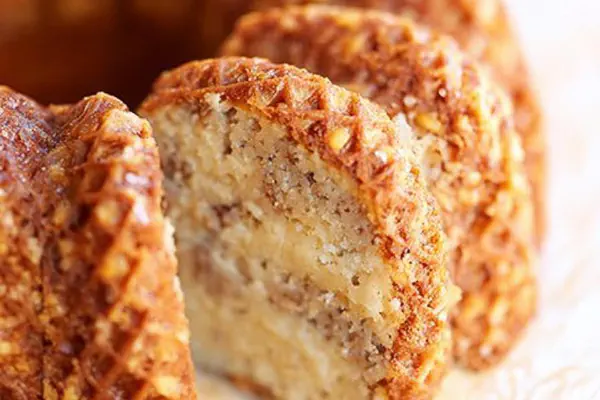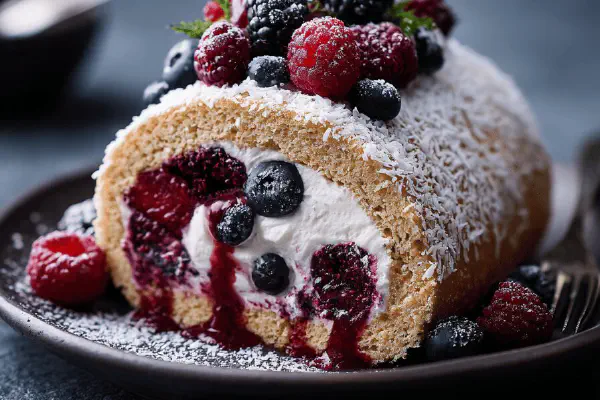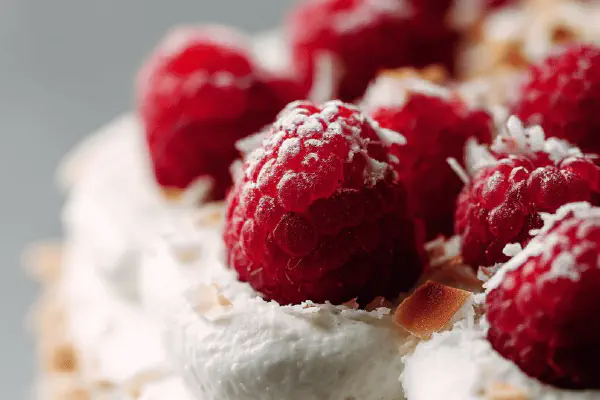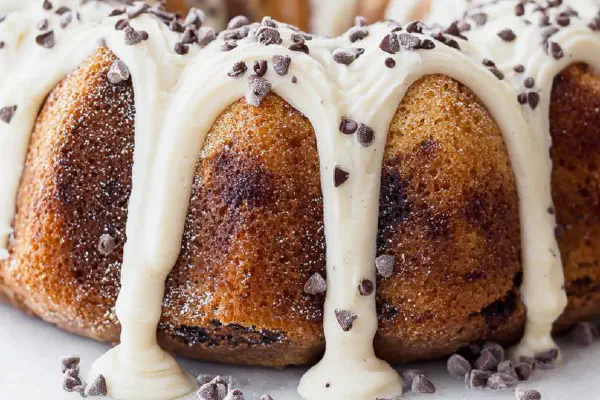Featured Recipe
Coconut Tres Leches Poke Cake
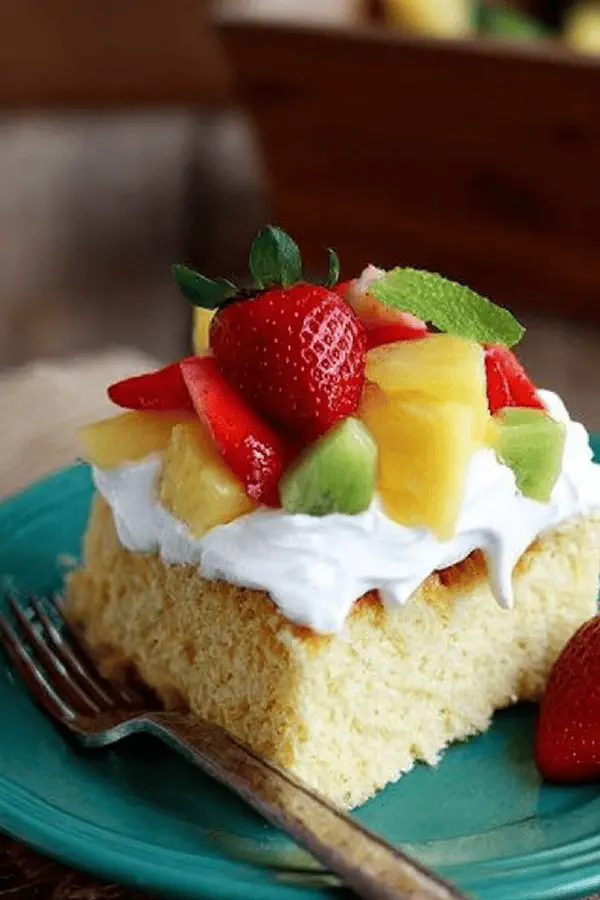
By Kate
"
A moist vanilla cake soaked with a blend of coconut milk, evaporated milk, and pineapple juice. Punched holes let the liquid seep in, creating rich moisture throughout. A quick coconut pudding layer seals the soak in before whipped cream tops it all off. Tropical fruit adds brightness and texture. Adapted with coconut and pineapple flavors instead of traditional milks, bringing an island twist. Timing is flexible but watch for visual cues like shine on the cake surface and pudding slightly thickened. Whipping cream to stiff peaks—key for stable topping. Solve dryness by adjusting soak liquids or poke deeper holes.
"
Prep:
35 min
Cook:
25 min
Total:
Serves:
12 servings
tropical
coconut
Latin American
cake
party
Introduction
Not your typical tres leches. Cutting out the usual cow’s milk trio and swapping in coconut milk and pineapple juice shifts things tropical, but the core challenge remains. We need a cake that holds up, punchable but not crumbly. Then soaking right, visible shine, saturation—you don’t want puddles, but you want that juicy texture inside. Next pudding layer to lock the moisture in, but it can’t be runny or it slips right off. The whip cream finish? Cold bowl, slow build up, stiff peaks. It’s all about the tactile and visual cues to hit that balance. Fresh fruit on top for brightness. Coconut and pineapple bring a unique spin, and they keep the cake from getting heavy. Good for warm days or any time you want some island vibes on your fork.
Ingredients
About the ingredients
Looking for dairy-free options? Swap heavy cream with coconut cream whipped cold, but texture and stability may vary. Evaporated milk substitution with sweetened condensed milk works but cut back on sugar in the pudding and topping. Pineapple juice adds acidity that really cuts through richness; don’t skip this if you want the brightness. Vanilla cake mix makes this a 30-minute throw-together, but use a box with a sturdy crumb; some mixes crumble too much and will fall apart after soaking. Pro tip: grease the pan well with butter and dust lightly with flour to avoid sticking, given how wet the cake gets. Instant pudding powder needs to be cold milk for proper thickening; warm milk disrupts the setting.
Method
Bake cake
- Preheat oven to 350F. Mix cake batter per box instructions—eggs, oil, water in a large bowl. Pour into a greased 9x13 pan. Level batter with spatula. Baking time varies; start checking at 22 mins. Edges golden and spring back to touch signals ready. Cool cake about 20 mins; warm but no longer hot.
- Use wooden spoon handle to poke 40-50 random holes through the cake. Doesn't have to be perfectly spaced. Mix coconut milk, evaporated milk, and pineapple juice in a bowl. Pour over cake slowly, focusing on letting liquid fill holes. Watch for shiny wet spots where liquid saturates top and begins to pool—stop pouring.
- In another bowl, whisk cold milk and coconut pudding powder until blended. Let sit 4-6 mins till slightly thick, pudding consistency. Pour evenly over cake, making sure pudding seeps into holes too. Chill cake covered with foil for 4-5 hours or overnight. The cake absorbs moisture while pudding sets. Look for a firm but creamy surface.
- Chill mixing bowl and beaters beforehand for better whipping volume. Pour cold heavy cream in. Begin whipping on medium speed; cream will froth then thicken. Add powdered sugar tablespoon by tablespoon. Stop whipping at stiff peaks—cream holds shape without running. Spread gently over pudding layer with offset spatula, avoid deflating.
- Top with diced mango or pineapple for fresh zing and color contrast. Serve chilled. Cake should be moist but not soggy; pudding layer creamy; whipped cream airy and stable.
- Too dry? Make deeper holes next time or add 1/4 cup extra liquid soak. Pudding too runny? Let it thicken longer before spreading. Whipped cream too soft? Chill bowl longer or add a teaspoon of cream cheese for stability. Substitutions: evaporated milk can be replaced by sweetened condensed (reduce sugar), or almond milk for dairy-free. Pineapple juice replaced with orange juice changes flavor but keeps acidity.
- Serving tip: cut with plastic knife dipped in hot water for clean slices.
Poke and soak
Pudding layer
Whipped topping
Garnish and serve
Troubleshooting and tips
Technique Tips
Assemble with care after baking and partial cooling. Poking holes evenly but not too shallow is crucial; you want soak to penetrate but not punch through to the pan. When pouring soak, do it slowly—stop when the cake looks visibly wet but not swimming. Let pudding set longer than package suggests to ensure thickness; watery pudding means your topping will slide off. Whipping cream—temperature is everything. Cold cream in cold bowl equals quick rise to stiff peaks. Add sugar slowly so it dissolves and sweetness is balanced. Spreading the whipped cream gently avoids deflating air you just incorporated. Refrigerate long enough for flavors to meld; overnight is best. Fruit topping not only adds flavor but also texture contrast and color pop.
Chef's Notes
- 💡 For best results, bake the cake until edges are golden, touch it—springs back means good. Using a sturdy cake mix helps prevent crumbles. Grease pan well; sticking's a mess. Remember, the soak needs deep holes. Avoid rushing—let it absorb the liquid fully without swimming.
- 💡 When mixing pudding, combine the cold milk with coconut pudding until blended well. Let it sit before pouring—gives it time to thicken. If it’s too runny once set, extending time will help. Layer it evenly, let it sink into those holes.
- 💡 Whipped cream demands cold conditions. Whip heavy cream in a pre-chilled bowl. Start on medium—then increase speed. Sugar should be added slowly, gives better volume and sweetness balance. Stop whipping only when it holds shape firmly without drooping.
- 💡 Fruits on top boost freshness. Look for ripe, firm varieties. Diced mango, pineapple both give color and zing. Keep cake chilled after frosting; flavor melds over time. If it looks too dry, consider a deeper poke next time or add a bit of liquid.
- 💡 When slicing, think warm water for the knife. Cuts cleaner—less mess. Always store leftovers in refrigerator; keep covered. If needing a dairy-free route, swap heavy cream with coconut cream. Sweetened condensed milk can replace evaporated milk but alter sweetness levels.
Kitchen Wisdom
How to keep the cake from being too dry?
Achieve moistness by poking deeper holes next time. Consider adding 1/4 cup more soak liquid. Texture's all in the soak. Deeper channels—better absorption.
What if the pudding layer is runny?
Let it thicken longer than package suggests next time. Cold milk is crucial for setting. Watery pudding will slide off topping, avoid that at all costs.
How to store leftover cake?
Refrigerate it tightly covered, prevents drying out. If worried about sogginess, keep fruit separate and add fresh before serving. Avoid standing at room temperature too long.
Can I switch up the juices in soak?
Yes, swap pineapple juice for orange juice. It alters flavor but keeps acid balance. Just adjust sweetness in puddings—can change textures too.
